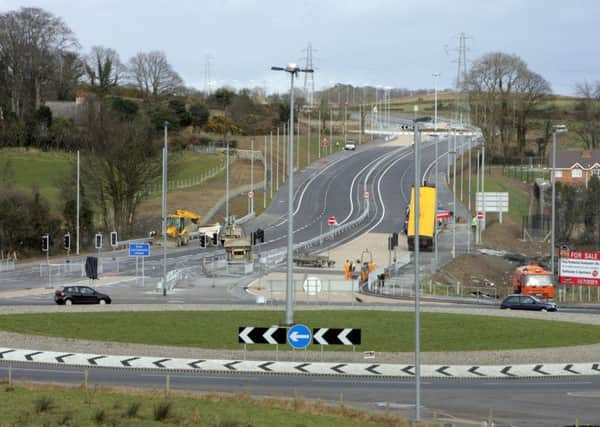4,500 on housing waiting list as plans to overhaul points system being examined


The housing waiting list for Derry and Strabane stood at 4,500 applicants by the start of April this year, a slight increase on the previous year.
Figures obtained from the Housing Executive show that across the Derry and Strabane Council area over the year to the start of April, 2019, there were 1,739 cases of people presenting as homeless, of which 1,119 were accepted as such.
Advertisement
Hide AdAdvertisement
Hide AdA total of 3,401 of the 4,510 housing applicants on the waiting list were assessed as being in housing stress with 30 or more points, compared to 3,279 last year.
The number of homes allocated over the course of the year, meanwhile, rose to 917 compared to 729 the previous year.
In terms of new social housing, the Housing Executive said that 716 dwellings have been constructed since April 2016, with a further 1,189 under way locally.
Last year it was confirmed that single people waiting to be housed made up almost half of all those on the waiting list. However only around one in seven of these applicants was allocated a home during the year.
Advertisement
Hide AdAdvertisement
Hide AdThe Department for Communities meanwhile has now confirmed it is preparing to publish the findings of consultation on 2017 proposals to overhaul of the housing allocation (points) system and make it fairer for all.
The ‘Fundamental Review of Social Housing Allocations’ followed a debate on the points allocation system in the Assembly in 2016 before Stormont collapsed.
The consultation ran from September to December 2017, and the review set out 20 proposals for change .
The aim, the Department said this week, at making “the allocation process more fair, transparent and effective for all”, but there has been no minister in place to move the process forward.
Advertisement
Hide AdAdvertisement
Hide AdThe proposals included scrapping intimidation points and Interim Accommodation points from the selection scheme, while applicants who have been involved in “unacceptable behaviour” would not be eligible for social housing or Full Duty homelessness status unless there was a reason to believe such behaviour will stop.
The new plans would also result a reduction from three to two in the number of reasonable offers issued and in multiple offers being issued to as many applicants as necessary for difficult-to-let properties. There would also be a greater choice of areas for all , while specialist properties, such as wheelchair accessible accommodation, would be allocated via a separate process.
A DfC spokesperson confirmed to the ‘Journal’ that consultation ended 18 months ago.
She said: “185 responses to the consultation were received. Departmental officials have analysed the responses.
Advertisement
Hide AdAdvertisement
Hide Ad“The Department will consider next steps in the absence of a minister and will publish a report highlighting consultation findings in due course.”
The Housing Executive’s Housing Selection Scheme, the system for assessing housing need and allocating social homes, has been in place, largely unchanged, since 2000.
The new proposals are aimed at ensuring that those in the greatest housing need receive priority, with recognition of the length of time they have spent on the waiting list.
Speaking back in 2017, a DfC spokesperson said: “The Department recognises the need for changes to the current Housing Selection Scheme and has therefore launched a public consultation on its proposals.
Advertisement
Hide AdAdvertisement
Hide Ad“The proposals build on the strengths of our current allocations system and put forward proposals, informed by entirely independent research, on how the system can be improved.
“The review aims to tackle the long waiting times many face and address the needs of our most vulnerable applicants, by placing more emphasis on time waiting, based on similar levels of need.”